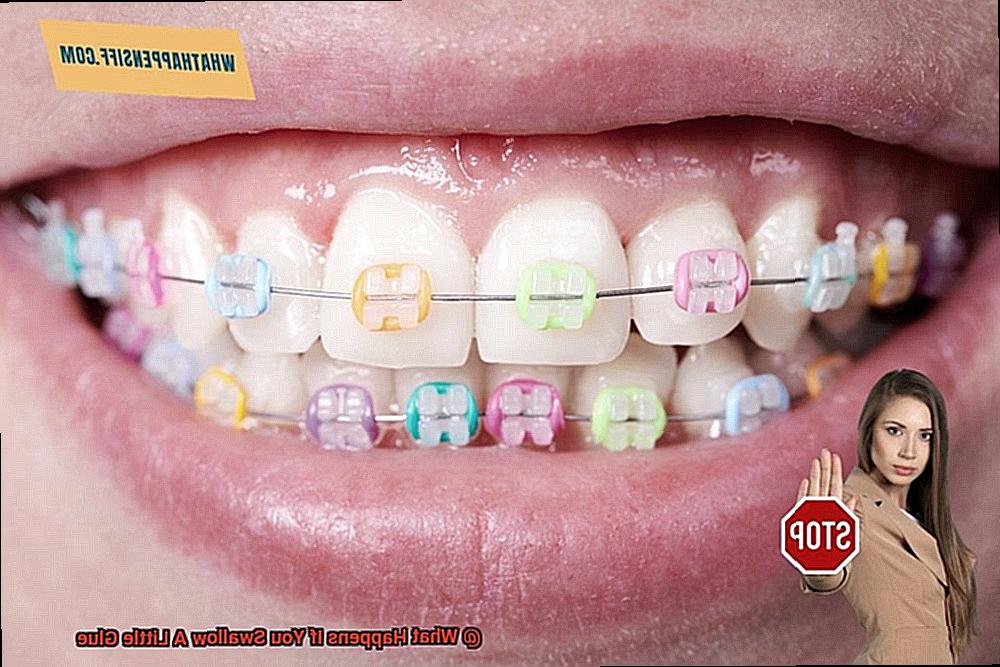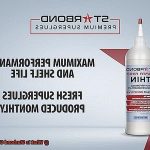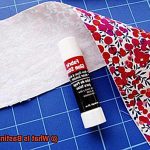Ever wondered what would happen if you accidentally swallowed a bit of glue? Yeah, me too. It’s one of those weird scenarios that make you scratch your head and go, “Huh, what now?” Well, today we’re diving deep into this sticky situation to uncover the truth.
Turns out, ingesting glue – even just a smidge – can have some interesting effects on our bodies. And no, it’s not all rainbows and unicorns. From immediate discomfort to potential long-term consequences, this seemingly harmless substance can pack quite a punch.
So buckle up and get ready for a wild ride as we unravel the mysteries behind swallowing glue. We’ll debunk myths, explore the science behind it all, and arm you with some serious knowledge for future sticky emergencies. Trust me, you’ll want to be prepared when life throws you a curveball like this.
So, grab your favorite snack, sit back, and let’s embark on this wacky adventure together. Because who knows when you might find yourself face-to-face with a tube of glue that looks suspiciously delicious?
What is Glue?
Contents
Glue, a humble yet formidable adhesive, has become an indispensable tool in our daily lives. It effortlessly binds materials together, from delicate crafts to robust construction projects. In this article, we will explore the captivating world of glue, unraveling its composition, various types, and the vast array of applications it serves.
Composition and Types of Glue:
Glue is a remarkable amalgamation of polymers, solvents, and additives. The polymers are the backbone of its adhesive properties, forming long chains that create powerful bonds. Depending on specific needs, different types of glue are available in the market.
White Glue (PVA glue):
Also known as school glue, this versatile adhesive is perfect for household use and craft projects. Safe and non-toxic, white glue dries transparently, making it ideal for bonding paper, cardboard, fabric, and other porous materials.
Super Glue (Cyanoacrylate):
In moments when time is of the essence, super glue comes to the rescue. This fast-acting adhesive instantly forms an unyielding bond upon contact with moisture. It is the go-to choice for fixing small objects or repairing broken items with precision and speed.
Epoxy Glue:
Engineered for durability and strength, epoxy glue is a two-part adhesive that combines resin and a hardener. When these components unite, a chemical reaction occurs, resulting in an impervious bond. Widely used in construction and automotive industries, epoxy glue withstands extreme conditions while providing long-lasting adhesion.
Hot Glue:
A cherished ally for arts and crafts enthusiasts, hot glue is applied in its molten state using a hot glue gun. Rapidly solidifying upon cooling down, it creates an indomitable bond. Its versatility lends itself perfectly to temporary fixes, fabric bonding, or even creating intricate designs.
Specialty Glues:
In addition to the common types mentioned above, specialty glues cater to specific applications. Woodworking glue, fabric glue, and electronic repair adhesives are tailored to meet unique needs. They ensure optimal adhesion for specific materials or surfaces, enhancing the overall quality of the final product.
Safety Considerations:
While glue is generally safe when used as directed, responsible handling is crucial. Accidental ingestion, particularly among young children who may mistake glue for food or drink, can be harmful. Ingesting small amounts of non-toxic glue typically passes harmlessly through the digestive system. However, swallowing larger amounts or certain industrial-strength glues can be more dangerous and may require immediate medical attention.
Types of Glue
Let’s embark on a journey through the realms of glue and uncover the potential risks associated with ingestion.
Types of Glue:
In this vast universe of adhesives, we encounter an array of glues with unique capabilities. White glue, super glue, epoxy glue, construction adhesive, hot glue, wood glue – the list goes on. There are even specialized glues tailored for fabrics, leather, and glass.
Water-Based Glues:
Water-based glues, like school glue or PVA glue, are generally safe to use. Accidentally ingesting a small amount is unlikely to cause harm. However, consuming large quantities may lead to discomfort or blockages in the gastrointestinal tract.
Mighty Super Glue:
Super glue possesses extraordinary strength, capable of bonding materials swiftly. Ingesting a small amount of super glue is not cause for panic. Nonetheless, it may stick to the mouth or throat, necessitating assistance from a responsible adult or medical professional.
Hot Glue Predicaments:
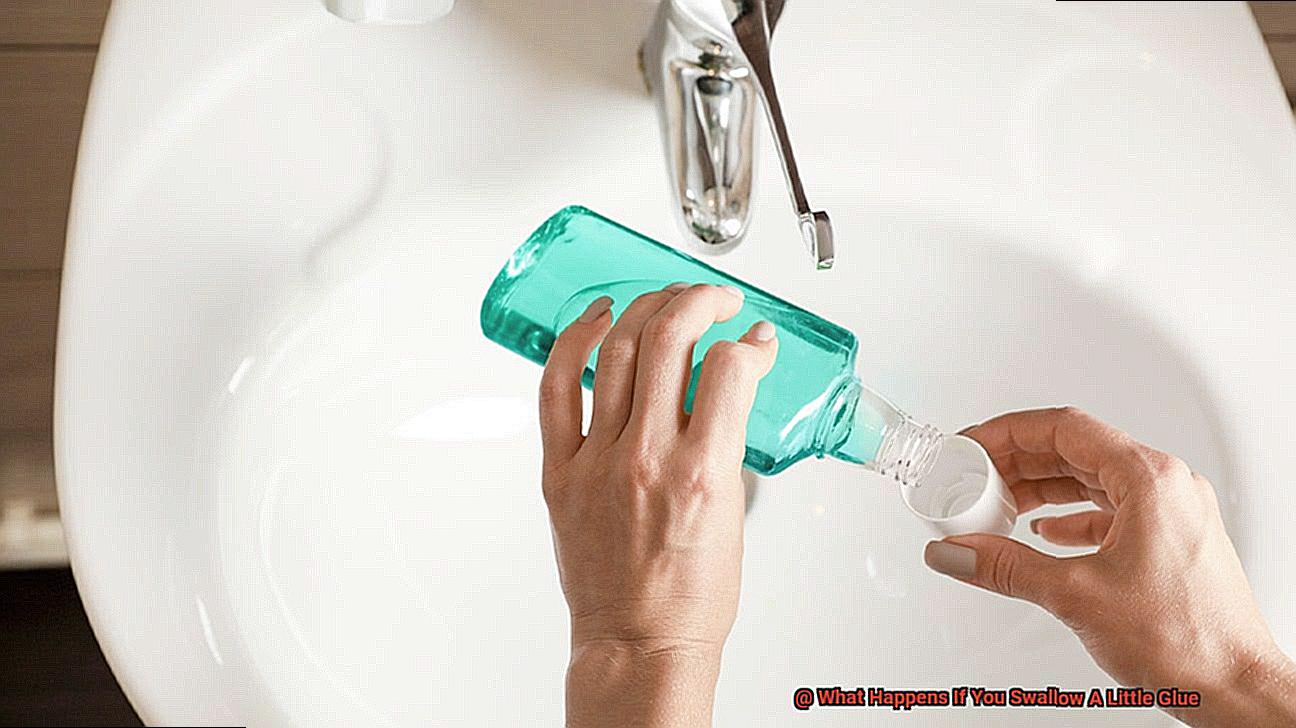
Hot glue, akin to molten sorcery that promptly cools down, creates robust bonds. Yet, swallowing hot glue can result in burns or scalds within the oral cavity or throat. Ouch. Alert an adult immediately if such an unfortunate incident occurs.
Industrial Adhesives:
Industrial adhesives are heavy-duty glues employed in construction and manufacturing. Ingesting these potent substances can be perilous and detrimental to your health. Should you accidentally swallow an industrial adhesive, do not hesitate – seek urgent medical aid.
Remember: Safety First.
Always peruse the instructions on the glue bottle and seek adult assistance when handling adhesives. Keep glues out of reach of young children, and never treat glue as a delectable snack – it most certainly is not.
Accidental Ingestion of Glue
Accidental ingestion of glue can be a sticky situation, quite literally. Whether you’re a craft enthusiast or a concerned parent, it’s vital to understand the potential risks and treatments associated with this curious incident.
Kids, being the curious creatures they are, may mistake glue for food or candy. And who can blame them? Some glues do bear a striking resemblance to yummy treats. But here’s the scoop: glue is typically made from synthetic polymers like polyvinyl acetate (PVA) or cyanoacrylate, and these substances are definitely not meant for ingestion. They can wreak havoc on the body if swallowed.
So, what happens when glue finds its way into our digestive system? Well, it can cause a range of symptoms depending on the type and amount consumed. We’re talking nausea, vomiting, abdominal pain, and even diarrhea. Not exactly the kind of crafty experience we signed up for.
That’s why immediate medical attention is crucial in tackling this sticky situation head-on. Rushing to the nearest healthcare professional ensures proper assessment and treatment tailored to the individual’s age, overall health, and severity of symptoms.
Now, let’s talk treatment options. The medical experts may induce vomiting to remove the glue from the stomach. If there’s any remaining glue in the digestive system, they might administer activated charcoal to absorb it. And yes, it’s as dramatic as it sounds – in severe cases or if complications arise, additional interventions like endoscopy or surgery might be necessary to remove any obstructions caused by the glue. Yikes.
But hey, prevention is key. To minimize the risk of accidental ingestion, store your glue properly out of reach of children and make sure those containers are securely closed. Educating our little ones about the potential dangers of swallowing glue is also a must-do. And let’s not forget good old supervision during arts and crafts activities involving glue – it goes a long way. And if you can, opt for non-toxic alternatives whenever possible.
Effects of Swallowing Glue
Swallowing glue may seem like a harmless mistake, but its effects on the body can be far from pleasant. Whether it’s a small accidental ingestion or a larger mishap, understanding the potential consequences is crucial.
Let’s start with the most common symptoms of swallowing glue – nausea, vomiting, stomach pain, and diarrhea. The severity of these symptoms depends on the type and amount of glue consumed. While they are usually temporary, they can still make you feel miserable for a while.
Yet there are rarer but more serious reactions you should be aware of. Allergic reactions to glue ingredients can cause difficulty breathing, hives, or swelling of the face or throat. If any of these symptoms occur after swallowing glue, immediate medical attention is crucial.
But that’s not all. Swallowing certain types of glue, such as superglue or epoxy, can lead to a dreaded obstruction in your digestive tract. These glues harden inside your body and can create a blockage that might require surgical intervention to remove.
The specific ingredients in the glue also play a role in its potential harm. Glues containing solvents or chemicals like acetone or toluene can be more toxic if swallowed. Remember to read labels and follow manufacturer instructions when using any adhesive product.
So what should you do if you accidentally swallow glue? First, rinse your mouth with water to remove any residue. Monitor for symptoms and seek medical attention if they worsen or persist. If you’ve ingested a large amount or experience severe symptoms, don’t hesitate to seek immediate help.
Preventing glue ingestion is the best way to avoid its negative effects. Store glues out of children’s reach and educate them about the dangers. When crafting with glue, supervise their activities and consider non-toxic alternatives whenever possible.
Short-term Effects of Swallowing Glue
Swallowing glue may seem like a harmless and perhaps even fun experiment, but the short-term effects can be anything but enjoyable. Let’s take a closer look at what happens when that sticky substance takes an unexpected detour down your throat.
One of the most common short-term effects of swallowing glue is gastrointestinal distress. Your tummy may rebel and make you regret your impulsive decision. Nausea, vomiting, and stomach pain can crash the party, leaving you feeling less than fabulous.
But it doesn’t stop there. Swallowing glue can also cause irritation and inflammation in your throat and esophagus. Suddenly, something as simple as swallowing becomes an uncomfortable ordeal. The smooth passage of food and drink turns into a rough and scratchy journey.
Now, let’s address the elephant in the room: allergic reactions. It turns out that some people have a not-so-friendly relationship with glue. If you’re one of these unlucky individuals, ingesting glue can trigger itching, hives, and even difficulty breathing. Talk about a sticky situation.
But hey, it gets even better. Swallowing glue can be a choking hazard. Imagine that gooey mess getting stuck in your airway – not a pretty picture. So, let’s keep the glue where it belongs: on paper and crafts, not in our throats.
Oh, and did I mention chemical burns? Some types of glue contain harsh chemicals that can wreak havoc on your digestive system if swallowed. That innocent-looking adhesive can turn into a fiery surprise for your insides.
Last but not least, let’s not forget about nutrient absorption. Glue may interfere with your body’s ability to absorb those essential vitamins and minerals we all need to thrive. So, while glue might stick things together like magic, it’s not exactly a nutritional powerhouse.
Long-term Effects of Swallowing Glue
Swallowing glue may seem like an unusual and risky endeavor, but some individuals have been tempted to explore this peculiar act out of curiosity or sheer adventurous spirit. However, before embarking on such a daring feat, it is crucial to understand the potential long-term consequences that could arise.
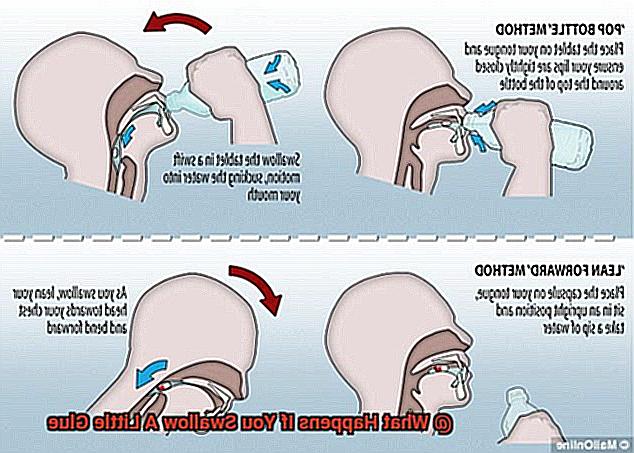
Although there is a scarcity of studies specifically investigating the long-term effects of ingesting glue, it is widely acknowledged that glue is not intended for consumption and can have detrimental impacts on the body. Polyvinyl acetate, a key component found in many glues, can wreak havoc on the digestive system when introduced into the delicate environment of the gastrointestinal tract. Severe irritation, stomach pain, nausea, vomiting, and even a distressing bout of diarrhea are just some of the unwelcome memories that swallowing glue can leave behind.
However, the perils do not end there. For those who develop a habit of ingesting glue over an extended period, far more ominous complications may arise. Intestinal blockages or bowel obstructions can emerge as a result, posing significant risks to one’s health and well-being. These are hardly accolades one would desire to include on their personal resume.
Moreover, the presence of additional chemicals or solvents in certain glues further compounds the hazards associated with swallowing them. These troublemaking substances can wreak havoc on vital organs like the liver and kidneys when ingested. The consequences of such chemical toxicity are undeniably alarming.
In addition to these concerns, prolonged exposure to specific glue chemicals may also wreak havoc on the respiratory system. While direct evidence linking swallowing glue to lung damage is lacking, repeated exposure to these chemicals could potentially leave individuals struggling to catch their breath. The thought of compromised respiratory function should certainly give pause to anyone considering this ill-advised venture.
In light of these potential dangers, it becomes abundantly clear that engaging in glue consumption is nothing short of a recipe for disaster. Should one find themselves in a sticky situation where glue has accidentally been swallowed, it is of utmost importance to seek immediate medical attention. Only trained professionals can adequately assess the situation and provide the appropriate treatment to mitigate any potential harm.
Preventing Accidental Ingestion of Glue
Today, let’s delve into the world of preventing accidental ingestion of glue. Whether you’re a vigilant parent, a dedicated teacher, or someone looking out for others, this article will equip you with practical tips to keep everyone safe and sound.
Safe Storage:
Let’s begin with the basics – proper glue storage. Keep it out of reach and sight of curious little hands by placing it on high shelves or in locked cabinets. This simple step acts as a crucial barrier against mishaps.
Educate, Educate, Educate:
Knowledge is power, my friends. Take the time to educate children about the potential dangers of ingesting glue. Engage them in age-appropriate discussions about safety, emphasizing that glue is strictly for arts and crafts, not for consumption. Reinforce this message regularly.
Supervision is Key:
When children are using glue, close supervision is paramount. Keep a watchful eye on their activities to ensure they’re handling the glue properly and not getting any whimsical ideas about taste tests. Remind them to avoid putting anything non-food related into their mouths while working with glue.
Explore Safer Alternatives:
Consider opting for non-toxic and washable glues as a safer alternative. These specially designed glues are less harmful if accidentally ingested, providing an extra layer of protection for our imaginative little geniuses.
Emergency Preparedness:
Prepare for the unexpected by having emergency contact information readily available. Keep poison control hotline numbers and local emergency services easily accessible so you can act swiftly if an accidental ingestion occurs.
Seeking Medical Attention for Swallowed Glue
When it comes to accidental glue ingestion, time is of the essence. Swallowing glue can be potentially harmful, so seeking medical attention promptly is crucial. Here’s what you need to know:
- Assess the situation: First things first, determine the type and amount of glue swallowed. Non-toxic and water-soluble glues, like your favorite white school glue, may not cause serious harm. However, if the glue is toxic or contains harmful chemicals, immediate medical attention is a must.
- Watch out for symptoms: Keep a vigilant eye for distress signals such as difficulty breathing, chest pain, coughing up blood, vomiting, or abdominal pain. These warning signs could indicate that the swallowed glue is wreaking havoc inside the body.
- Take action: In case of an emergency, don’t waste a second – contact your local poison control center or dial emergency services right away. Trained professionals will guide you through the necessary steps to address the situation effectively.
- Share the deets: When seeking medical attention, provide accurate information about the type of glue and the amount swallowed. This vital information enables healthcare professionals to determine the best course of action.
- Time matters: Remember, delay can lead to complications. Don’t brush off the incident or assume it will pass on its own – seek help promptly.
- Follow medical advice: Once you receive medical treatment, adhere to any instructions given by healthcare providers for a full recovery.
KxCBENKD9XQ” >
Conclusion
When it comes to swallowing a little bit of glue, you might be wondering what exactly happens inside your body. Well, let me tell you, the consequences are not as dire as you might think. While ingesting glue is not recommended or encouraged, a small amount is unlikely to cause any serious harm.
Your digestive system is designed to break down and process various substances, including glue. The enzymes and acids in your stomach work together to break down the glue and render it harmless. In most cases, the glue will pass through your system without causing any issues.
However, it’s important to note that different types of glue may have different ingredients and formulas. Some glues contain chemicals that could potentially be harmful if ingested in larger quantities or on a regular basis. So while swallowing a small amount of glue may not be an immediate cause for concern, it’s always best to err on the side of caution and avoid ingesting any non-food substances.
If you accidentally swallow a little bit of glue, there are a few things you can do to minimize any potential risks. First and foremost, try not to panic. Remember that your body is equipped to handle small ingestions like this. Drink plenty of water or milk to help dilute the glue and aid in its passage through your digestive system.
In rare cases where symptoms such as nausea, vomiting, or abdominal pain occur after ingesting glue, it’s advisable to seek medical attention just to be safe. A healthcare professional can assess your specific situation and provide appropriate guidance.
Ultimately, while swallowing a little bit of glue may not have immediate catastrophic effects on your health, it’s always better to exercise caution and keep non-food items out of your mouth. Prevention is key when it comes to avoiding unnecessary risks and ensuring your overall well-being.

